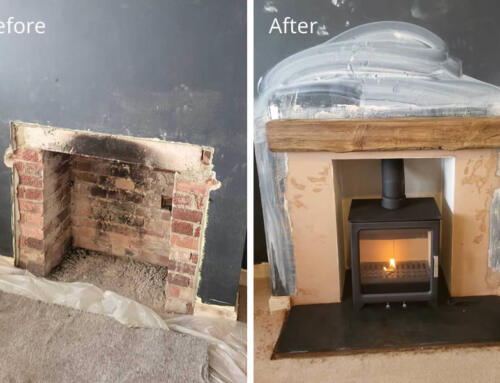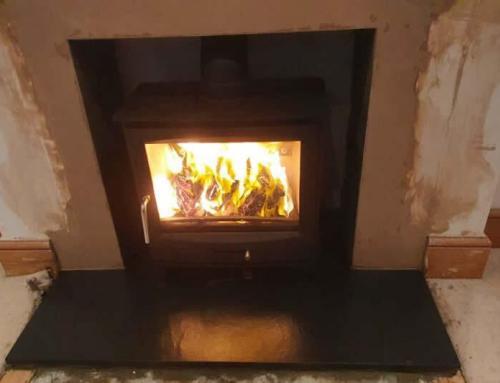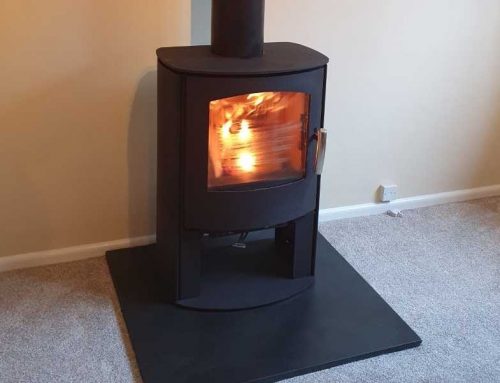Which fuel should I use for my wood burner?
Burning wood has a significant less environmental impact compared to fossil fuels and burning wood releases the same amount of CO2 then it would produced if the log was left to naturally decompose in the woods. Wood can also be transported easier and requires less processing and there are huge resources of wood in the UK, thanks to properly managed woodlands.
Many customers think they need a multi-fuel stove, although most only ever burn wood.
Why is log moisture content & wood density so important?
There are 2 elements which you need to consider when purchasing fuel for your wood burning stove, both will make a significant affect on the calorific value (CV) of your fuel.
- Moisture content
- Wood density
Wood with a moisture content of more than 25% could result in poor combustion and result in an performing stove together with creosote build-up in your chimney. We can provide a moisture meter with every new stove installation so you can check your suppliers log moisture content before purchasing.
You may have a choice of hard wood or soft wood logs. Hardwood logs are generally more dense and burn longer and generally are a more popular choice.
What are Seasoned logs?
You will hear the term ‘seasoned’ often when purchasing logs. Logs can contain 50% water when initially cut so need drying before burning or ‘seasoning’ to reduce the moister content to 15%-20%. Some woods need many seasons to fully dry, so use your moisture meter to check water content before you purchase.





